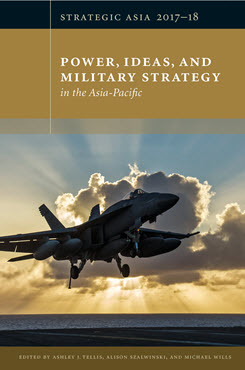South Korea's Grand Strategy in Transition
Coping with Existential Threats and New Political Forces
This chapter examines the development of South Korea’s grand strategy, with special reference to the military dimension, and argues that it is critical for South Korea to undertake structural military reforms and create a new bipartisan national security paradigm.
Executive Summary
MAIN ARGUMENT
Several facets of South Korea’s grand strategy remain constant, such as the goals of achieving peaceful reunification of the Korean Peninsula, deterring and defending the country’s territorial and political integrity from a range of North Korean threats, ensuring its global economic competitiveness, and sustaining its democratic foundations. Yet even as these pillars remain the same, South Korea must now adapt this strategy to address an unprecedented range of threats. It not only must contend with a growing spectrum of North Korean threats and nonlinear scenarios; it also must consider China’s anti-access/area-denial capabilities around the Korean Peninsula in an acute military crisis. These challenges will test the ability of the political leadership in Seoul to break out of its constant political infighting and build a new national security consensus.
POLICY IMPLICATIONS
- The South Korean government and military must anticipate hybrid conflict scenarios and the growing possibility of volatile transformations on the Korean Peninsula. The National Assembly should create a new national security committee to ensure bipartisan approaches to critical diplomatic, military, and intelligence issues.
- The U.S. must ensure the credibility of extended deterrence by demonstrating its military, political, and economic commitment to Asia as a critical superpower counterbalance vis-à-vis China.
- Despite outstanding historical differences and lingering legacies, it is important for South Korea and Japan to enhance their bilateral security, defense, and intelligence cooperation.
Strategic Asia
The Strategic Asia annual edited volume incorporates assessments of economic, political, and military trends and focuses on the strategies that drive policy in the region. Learn more about Strategic Asia.



